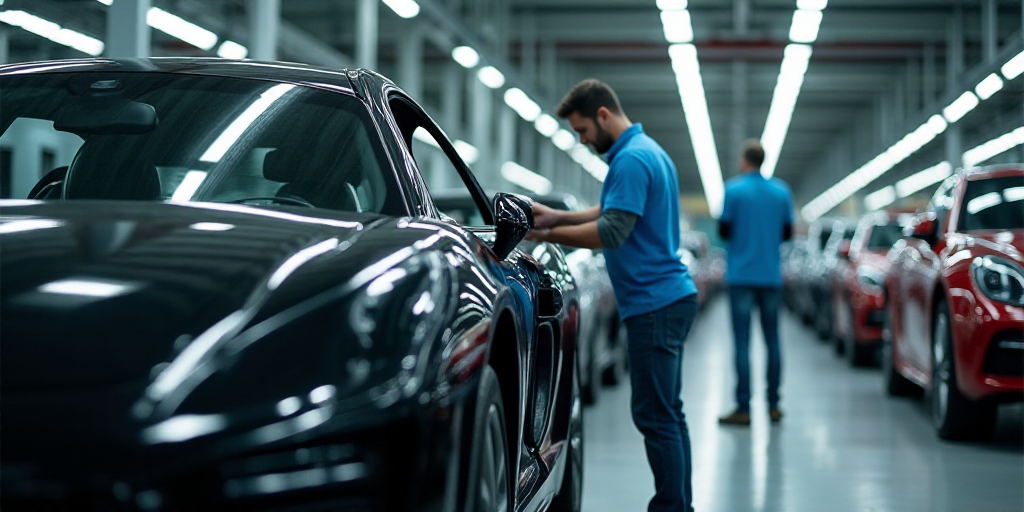Background on Manuel Montoya and His Relevance
Manuel Montoya Ortega, the General Director of the Cluster Automotive of Nuevo León (Claut), is a prominent figure in Mexico’s automotive industry. His insights are crucial as he sheds light on the current challenges and future prospects of this vital sector.
Key Developments in Mexico’s Automotive Industry
In the first quarter of the year, Mexico’s vehicle production has seen a near 5% increase compared to 2024. However, the country’s vehicle exports have experienced a -6% decrease by March. This situation makes it unfeasible to export vehicles that do not meet the T-MEC’s rules of origin, according to Montoya.
Mexico achieved a record production of 3.9 million vehicles in the previous year, with 80% exported to the United States, 8.5% to Germany, and the rest to other countries.
Impact of Tariffs on Mexican Automotive Industry
Montoya highlighted that the tariffs announced by President Trump are already impacting the industry. While production has grown nearly 5%, exports have dropped by 6%. He emphasized that vehicles not complying with the T-MEC rules of origin face 25% tariffs, making them unviable for export.
Comparison of Production and Exports
Mexico manufactures around 3.9 million vehicles, while the United States produces approximately double that at 10 million and Canada fabricates about 1 million in Ontario. Montoya estimated that vehicle production in North America will remain stable at 15-16 million units over the next few years, with Mexico producing around 4 million.
Export Prospects to Europe
A positive development is the expected increase in exports to Europe, particularly Germany. Currently, 26,000 vehicles are exported to Germany, but this number is expected to rise in two or three years when the new Golf model starts being exported to Europe, given Germany’s high demand for this brand.
Risks Associated with Low National Content Vehicles
In 2024, approximately 1.5 million vehicles were sold in Mexico, close to the record set in 2017 when 1.6 million units were sold. However, only one-third of the vehicles sold in Mexico are domestically assembled; the rest are imports.
Montoya pointed out that around 300,000 vehicles assembled in China were sold in Mexico without any components manufactured locally. This poses a risk to the national automotive industry, as these vehicles are technologically advanced and competitively priced but lack national content.
Recommendations for the Automotive Industry
Montoya stressed the need for measures to be taken, as an open trade policy like the current one could weaken the domestic market and national industry. He advocates for producing more vehicles locally, as brands from Germany, France, South Korea, the United States, and Japan have done.
Key Questions and Answers
- What is the current situation in Mexico’s automotive industry? Vehicle production has increased by nearly 5% in the first quarter of 2025, but exports have dropped by 6%. This makes it challenging to export vehicles that don’t meet the T-MEC’s rules of origin.
- Why is the situation problematic? The current scenario makes it unfeasible to export non-compliant vehicles facing 25% tariffs under the T-MEC. Moreover, the reliance on imported vehicles poses a risk to the national automotive industry.
- What are Montoya’s recommendations? He advocates for producing more vehicles locally and taking necessary measures to protect the domestic market and national industry from potential weaknesses caused by an open trade policy.






